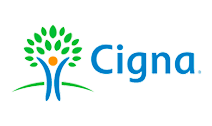Vision And Hearing Test in Sugar Land
The 5 senses, such as hearing, sight, smell, and taste, allow your child to experience the world. Sadly, however, babies and young children can suffer from hearing and vision loss, which will not only negatively affect their development but will also possibly make them unsafe and at risk for accidents and injuries.
The best way to effectively diagnose and manage vision and hearing loss, whether partial or complete, is to schedule regular screening appointments with your doctor. The medical team at Pediatrics of Sugar Land is fully qualified to offer screening services. The practice is equipped with the latest and top-notch technology for a thorough check-up and a precise diagnosis. Schedule your appointment today at pediatrics of Sugar Land.
Vision and Hearing Q&A
When Should Your Child Have Vision and Hearing Screening?
Every parent wants the best for their child, especially when it comes to their health. A critical aspect of a child’s health that must not be overlooked is their sensory development, particularly their vision and hearing. Regular screenings are essential for early detection and treatment of any potential issues. But when should these screenings take place?
According to recent studies, for hearing, it is recommended that babies undergo a hearing screening before leaving the hospital after birth. If the baby doesn’t pass this initial screening, a comprehensive hearing test is advised before the baby turns three months old. Furthermore, all children should have a full hearing test at the age of two, followed by annual checkups. These regular screenings help ensure that any hearing issues are caught early when they are often most treatable.
As for vision, children should receive several screenings before the age of five. These screenings are recommended at specific milestones in the child’s growth: at birth, three months, six months, three years, and five years old. If a child fails any of these screenings, they should have a full sight test to determine any potential problems.
It is important to note that parents don’t have to wait for their child’s next routine screening if they have any concerns about their hearing or vision. An appointment can be requested at any time. Early intervention is critical in managing many vision and hearing issues effectively, so don’t hesitate to seek professional advice if you have any concerns.
Regular vision and hearing screenings are crucial for your child’s health and development. Make sure to follow the recommended screening schedule and don’t hesitate to consult with a healthcare provider if you suspect any issues. Your proactive actions today can have a significant impact on your child’s future wellbeing.
Why would my child have vision and hearing problems?
Vision and hearing problems are common during childhood. Some causes are congenital, which means that they are present at birth. Such causes include genetic diseases, and eye or ear malformations caused by intrauterine infections.
Other times, hearing and vision problems are acquired, and will appear after birth and as the child grows older. Examples of acquired hearing and vision loss include myopia, also called near-sightedness, or auditory damage caused by a ruptured eardrum.
What are the symptoms of hearing or vision loss?
Vision and hearing problems often go unnoticed in babies and young infants. Sometimes, the family may notice that the child is not as reactive to their environment as their older sibling was at their age.
Family members may also get suspicious if the child isn’t startled by loud noises, doesn’t answer when their name is called, or doesn’t grab things handed to them.
Vision and hearing loss are often diagnosed in children of school age. This can happen either as a result of a systematic school screening test or if the child displays signs such as difficulty socializing with other kids or poor school performance.
What are the consequences of hearing and vision loss?
If a child suffers from vision loss in one eye, the brain begins to ignore, and eventually suppress, all the signals it receives from the impaired eye. This causes a complication known as amblyopia, commonly called lazy eye. Hearing problems on the other hand can interfere with the development of speech and language.
In general, both hearing and vision problems make the child unsafe in their environment, as they are not fully aware of any surrounding dangers since they can’t hear or see properly.
School performance is also affected, with many children suffering from learning difficulties. Children with hearing or vision loss also have poor social skills. This will not only affect the child’s self-esteem and mental health but will also expose them to stress and sadly make them an easy prey for bullies.
When should my child receive vision screenings?
Before the age of five, several vision screening consultations are advised. Right after birth, at three months, at six months, at three years, and at five years old. Additional screening appointments may be scheduled if your child failed a previous screening or if they display specific vision loss symptoms.
When should my child receive hearing screenings?
Ideally, all children should receive a preliminary hearing screening test by the time they are one month old. A full screening test is advised at the age of three months if the initial test conducted at one-month-old was not conclusive. Longer and more detailed screening tests are conducted around the age of two and a half years old.
How are screening tests conducted?
In general, screening tests are simple and pain-free evaluations. Different versions exist. they are specific and adapted to the different stages of childhood.
A regular hearing screening test will consist of different evaluations. These include:
– Automatic auditory response of the brainstem.
– Behavioral audiometry evaluation.
– Otoacoustic emissions.
A regular vision screening test will also consist of different examinations. These include:
– Papillary response test.
– Test to fix and follow.
– Retinoscopy.
– Lea symbols test.
– Test search.
What are the benefits of vision and hearing screenings?
Early vision and hearing screenings hold many benefits:
– An early diagnosis before the stage of complications and irreparable damage.
– Increased safety and awareness of the child’s environment.
– Improved communication skills and healthy social interaction with other children.
– A healthy self-esteem.
– Better school performance and less learning disability.
Hearing and vision problems often go unnoticed, only being diagnosed at late stages or in case of complications. At that point, medical management is more complex, often requiring long and expensive treatment plans, and even then, the damage already done is sometimes irreparable.
For these reasons and more, all children should be screened for hearing or vision problems, whether they display symptoms or not. Respecting the hearing and vision screenings schedule is the best way to ensure an early diagnosis and therefore an early and effective treatment.
When should children have a full sight test if they fail a screening?
If a child fails to pass a screening test, they should have a full sight test to check for any problems.
When should children have vision screenings before the age of five?
Children should have vision screenings at birth, three months, six months, three years, and five years old.
When should children have a full hearing test at the age of two?
All children should have a full hearing test when they turn two.
When should children have a full hearing test if they fail the initial screening?
If a baby doesn’t pass the hearing screening, they need a full hearing test before turning three months old.
When should babies have a hearing screening?
Babies should have a hearing screening when they’re at least one month old, ideally before leaving the hospital after being born.
Pediatrics of Sugar Land
Your treatment plan is designed for steady progress, with every phase promptly implemented.
Services
- ADD / ADHD
- Adolescent Care
- Allergies Care
- Asthma Care
- Autism Screening and Diagnosis
- COVID-19 Care
- Dietary and Nutrition
- Earache Care
- Fever Care
- Immunizations
- Lab Testing
- Newborn Care
- Pediatric Weight Management
- Prenatal Visits
- Preventive Health
- School and Sports Physicals
- Throat Pain
- Vaccination
- Vision and Hearing Services
- Well Child Exam






















